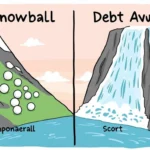In today’s consumer-driven world, credit card rewards have become a major selling point for banks and credit card issuers. From cashback and travel points to exclusive discounts and perks, credit card rewards sound like a fantastic way to earn money or benefits simply by spending as you normally would. But are they really worth it?
This article explores the truth behind credit card rewards, helping you understand their pros, cons, and whether they truly add value to your financial life.
What Are Credit Card Rewards?
Credit card rewards programs are incentives offered by credit card companies to encourage cardholders to use their cards regularly. These rewards typically come in several forms:
- Cashback: A percentage of your purchases is returned to you as cash.
- Points: Earn points per dollar spent that can be redeemed for merchandise, travel, gift cards, or statement credits.
- Miles: Specifically for travel, miles accumulate and can be redeemed for flights, hotel stays, or upgrades.
- Other Perks: Access to airport lounges, travel insurance, purchase protection, and concierge services.
How Do Credit Card Rewards Work?
Generally, you earn rewards based on your spending categories. For example:
- 1% cashback on all purchases
- 3% cashback on groceries or dining
- 5% cashback on gas or specific retail stores
Points and miles usually have redemption values. For instance, 1,000 points might equal $10 or a specific number of airline miles.
Some cards also offer sign-up bonuses, often requiring you to spend a certain amount within a few months to earn thousands of bonus points or cashback.
The Appeal: Why Are Credit Card Rewards Popular?
- Free Money: Getting cashback or points feels like getting paid for your spending.
- Travel Benefits: Airline miles and travel perks can save hundreds on vacations.
- Extra Perks: Many rewards cards come with insurance, purchase protection, or exclusive event access.
- Building Credit: Using rewards cards responsibly can help build or improve your credit score.
Are Credit Card Rewards Actually Worth It? The Pros and Cons
Pros
- Savings on Everyday Spending
Cashback rewards can return 1-5% on your spending, which can add up over time. - Travel Opportunities
Travel cards can help fund flights, hotel stays, and upgrades, especially if you travel frequently. - Welcome Bonuses
Many cards offer lucrative sign-up bonuses, which can be hundreds of dollars’ worth of rewards. - Added Protection
Rewards cards often come with purchase protection, extended warranties, and travel insurance. - Flexible Redemption Options
Many cards allow points to be used for statement credits, gift cards, or transferred to travel partners.
Cons
- High Interest Rates
Rewards cards often have higher interest rates than non-rewards cards, meaning carrying a balance can wipe out any rewards benefits. - Annual Fees
Some premium rewards cards charge annual fees ranging from $95 to $550 or more. - Complex Redemption Rules
Points and miles often have blackout dates, expiration dates, or complicated redemption processes. - Encourages Overspending
The temptation to spend more to earn rewards can lead to debt accumulation. - Limited Rewards Categories
Some cards offer high rewards in specific categories only, which might not match your spending habits.
How to Determine If a Rewards Card Is Right for You
1. Assess Your Spending Habits
If your spending aligns with a card’s bonus categories (e.g., dining, groceries, travel), a rewards card may benefit you.
2. Can You Pay Your Balance in Full Each Month?
Carrying a balance means paying interest, which can negate rewards. Rewards cards are best if you can pay off your balance every billing cycle.
3. Consider Annual Fees vs. Rewards Earned
Calculate whether the rewards you earn outweigh the card’s annual fee. Sometimes no-fee cards offer lower rewards but better net savings if you don’t spend enough to justify a fee.
4. Factor in Sign-Up Bonuses
Sign-up bonuses can be a great way to boost rewards in the short term but avoid overspending just to meet minimum spending requirements.
5. Look at Redemption Flexibility
Some cards allow easier and more valuable redemption options, like transferring points to travel partners or using points as statement credits.
Types of Credit Card Rewards Explained
Cashback Cards
- Simple and straightforward
- Earn a percentage back on every purchase or select categories
- Popular cards: Citi Double Cash, Chase Freedom Unlimited
Travel Rewards Cards
- Earn points or miles redeemable for flights and hotels
- Often come with travel-related perks (airport lounge access, no foreign transaction fees)
- Popular cards: Chase Sapphire Preferred, Capital One Venture
Store or Brand-Specific Rewards Cards
- Offer higher rewards for purchases within a specific retailer or brand
- Can come with exclusive discounts or perks
- Popular cards: Amazon Prime Rewards Visa, Target REDcard
Real-Life Examples: How Much Can You Earn?
Suppose you spend $2,500 monthly on:
- Groceries: $600
- Dining: $400
- Gas: $300
- Other purchases: $1,200
Using a card offering:
- 3% cashback on groceries
- 2% on dining
- 1.5% on gas and other purchases
Rewards Earned:
- Groceries: 3% of $600 = $18
- Dining: 2% of $400 = $8
- Gas: 1.5% of $300 = $4.50
- Other: 1.5% of $1,200 = $18
Total monthly cashback = $48.50 → $582 annually
This assumes no annual fees and full payment every month. If the card has a $95 annual fee, net rewards would be $487.
Tips to Maximize Credit Card Rewards in 2025
1. Use Multiple Cards Strategically
Use different cards for different categories to maximize rewards.
2. Take Advantage of Sign-Up Bonuses
Plan large purchases around sign-up bonus requirements, but don’t overspend.
3. Pay Attention to Bonus Categories and Rotations
Some cards offer rotating categories that change quarterly; activate and plan spending accordingly.
4. Redeem Points Wisely
Get the most value by redeeming travel points for flights or hotels rather than cash back, which often has lower value.
5. Monitor Expiration Dates and Terms
Don’t let points expire or become worthless because you failed to redeem or meet usage terms.
Common Mistakes to Avoid With Credit Card Rewards
- Carrying a balance: Interest charges can far exceed rewards earned.
- Ignoring fees: High annual fees without proportional rewards reduce net benefit.
- Not reading fine print: Missing out on redemption rules or bonus categories.
- Overspending: Chasing rewards can lead to unmanageable debt.
- Forgetting to redeem: Points can expire or become worthless if unused.
When Credit Card Rewards Are NOT Worth It
- You frequently carry a balance and pay high interest.
- You don’t spend enough in rewards categories to cover fees.
- You find the rewards program too complicated or restrictive.
- You prefer simpler financial management without juggling multiple cards.
Alternatives to Credit Card Rewards
- High-Yield Savings Accounts: Earn interest on your savings without risk.
- Cashback Apps and Portals: Use platforms like Rakuten or Honey for cashback without credit card involvement.
- Store Loyalty Programs: Save money directly through store discounts and coupons.
- Budgeting and Smart Spending: Prioritize paying off debts and saving instead of chasing rewards.
Final Verdict: Are Credit Card Rewards Worth It in 2025?
Credit card rewards can be worth it if you:
- Pay your balance in full every month
- Choose cards aligned with your spending habits
- Understand and manage fees and terms
- Use rewards strategically for maximum value
However, if mismanaged, rewards can lead to debt and financial stress. The key is discipline and informed choices.
Helpful Resources and Tools
- NerdWallet Credit Card Rewards Guide
- Credit Karma Credit Card Reviews
- The Points Guy – Expert travel rewards advice
- Bankrate Credit Card Calculator
🎁 Want a Surprise?
Click here to get redirected to a random post


